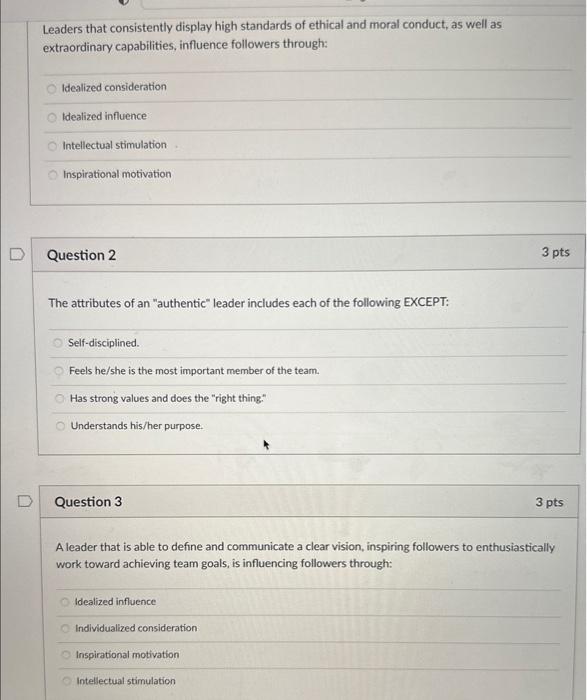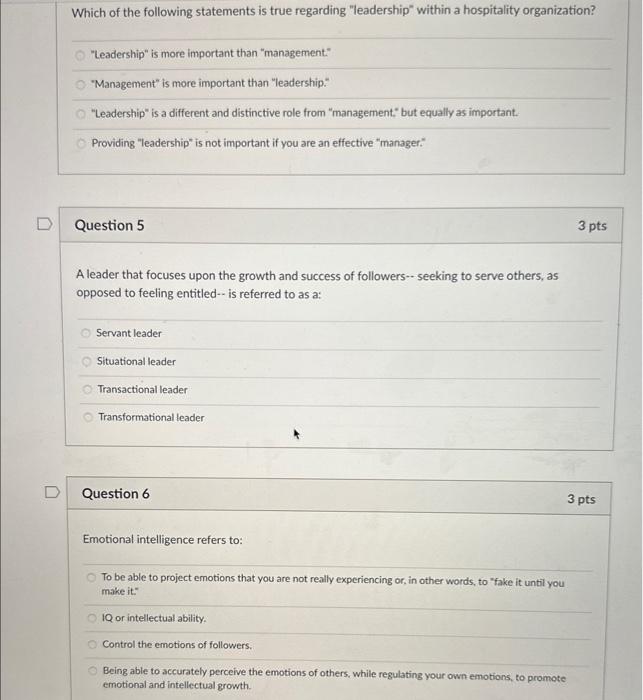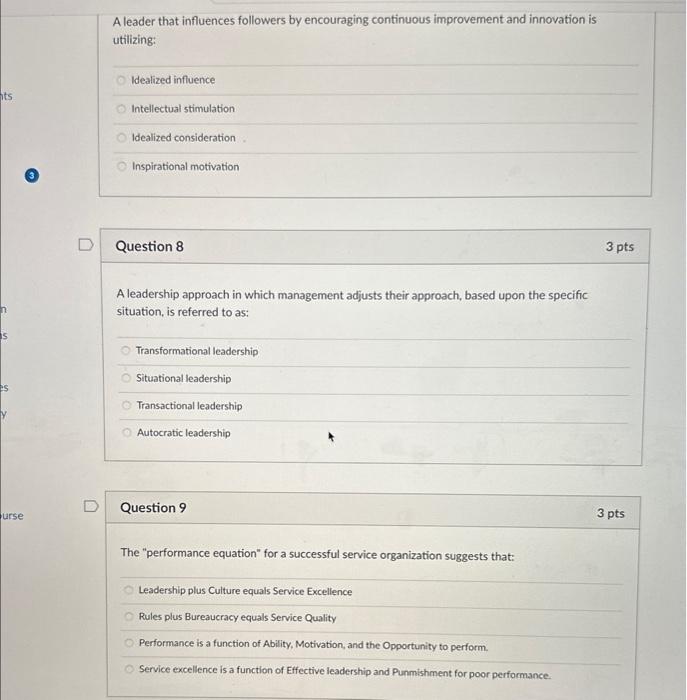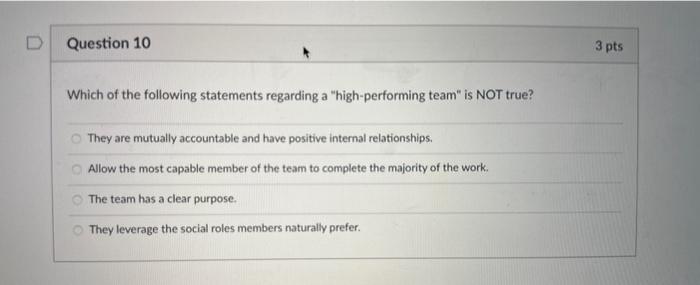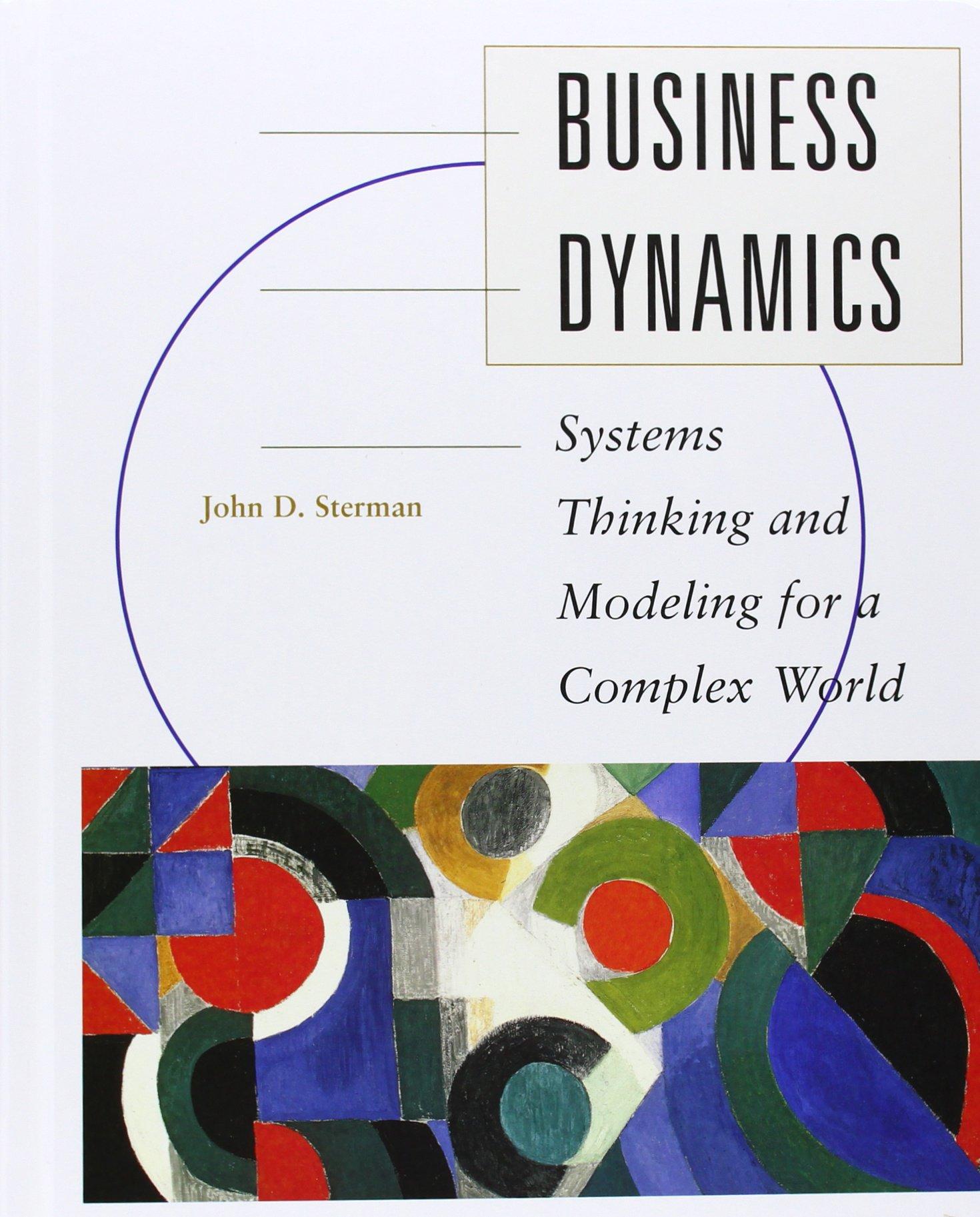Leaders that consistently display high standards of ethical and moral conduct, as well as extraordinary capabilities, influence followers through: Idealized consideration Idealized influence Intellectual stimulation Inspirational motivation Question 2 3 pts The attributes of an "authentic" leader includes each of the following EXCEPT: Self-disciplined. Feels he/she is the most important member of the team. Has strong values and does the "right thing." Understands his/her purpose. Question 3 3 pts A leader that is able to define and communicate a clear vision, inspiring followers to enthusiastically work toward achieving team goals, is influencing followers through: Idealized influence Individualized consideration Inspirational motivation Intellectual stimulation Which of the following statements is true regarding "leadership" within a hospitality organization? "Leadership" is more important than "management." "Management" is more important than "leadership." "Leadership" is a different and distinctive role from "management" but equally as important. Providing "leadership" is not important if you are an effective "manager:" Question 5 3 pts A leader that focuses upon the growth and success of followers - seeking to serve others, as opposed to feeling entitled- is referred to as a: Servant leader Situational leader Transactional leader Transformational leader Question 6 Emotional intelligence refers to: To be able to project emotions that you are not really experiencing or, in other words, to "fake it until you make it" IQ or intellectual ability. Control the emotions of followers. Being able to accurately perceive the emotions of others, while regulating your own emotions, to promote emotional and intellectual growth. A leader that influences followers by encouraging continuous improvement and innovation is utilizing: Idealized influence Intellectual stimulation Idealized consideration Inspirational motivation Question 8 3 pts A leadership approach in which management adjusts their approach, based upon the specific situation, is referred to as: Transformational leadership Situational leadership Transactional leadership Autocratic leadership Question 9 The "performance equation" for a successful service organization suggests that: Leadership plus Culture equals Service Excellence Rules plus Bureaucracy equals Service Quality Performance is a function of Ability, Motivation, and the Opportunity to perform. Service excellence is a function of Effective leadership and Punmishment for poor performance. Which of the following statements regarding a "high-performing team" is NOT true? They are mutually accountable and have positive internal relationships. Allow the most capable member of the team to complete the majority of the work. The team has a clear purpose. They leverage the social roles members naturally prefer
